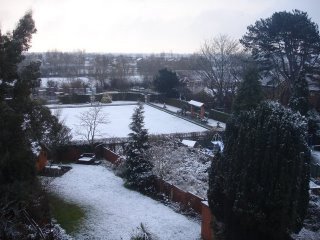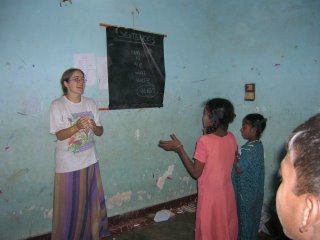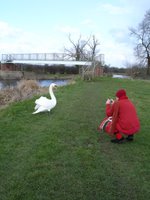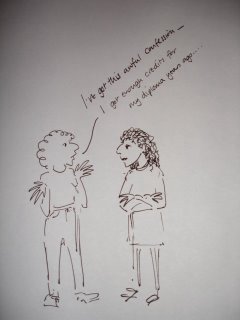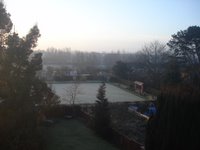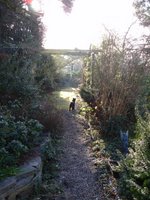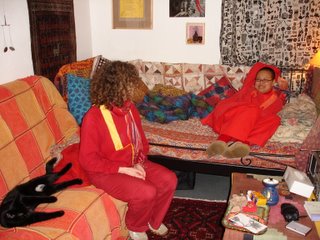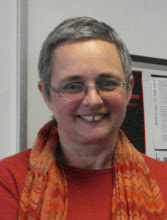Last night's service, I was giving the talk, so took as my theme the environmental catastrophe which hangs over us. Reading from
Joanna Macy's book
"World as Lover, World as Self", I looked at the four images which she identifies as characteristic of human views of the world. These images are: World as battlefield, World as trap, World as lover, World as self.
Against this, we can look at
James Lovelock's image: World as
Gaia, which, I think, offer more to the Pureland way of understanding the earth. Macy's "world as Self" is presented in the context of the
inter-being paradigm, but in Pureland, it is our respect for the separate nature of Amida, and indeed of other beings, that creates the focus of religious exprience. The image of Gaia is presented as an organism, a subject of wonder, full of complexity, and the epitomy of otherness. Gaia does not need us, but we need Gaia.
This image is concurrent with the Pureland idea of our own smallness (and foolishness) and of Amida’s greatness. We could indeed talk of the world as Amida. Yet Gaia may not survive out foolish behaviour and may not continue to offer the ever present love. Our sense of Amida must be different.
So our experience of Amida must be bigger. Facing an uncertain future, we can ask ourselvs, where is our faith? Is it big enough to go beyond the limited perspectives of this life and embrace a universe and universes that do not include our present world?
And what is our role, what our mission? How do we pass on the message in the dark times to come? THis is our task. If humans hang on by any means, the future will be bleak - maybe new dark ages, maybe an end of any semblence of civilisation. Just as dark age monastries carried the religion of their day, so too, those of us who practice the faith now need to prepare to carry our message on to future generations through our life of practice. Namo Amida Bu.
In due course I will tidy this talk nto an article that will appear in Running Tide. You can also get CDs of Amida Dharma Talks from Sujatin
